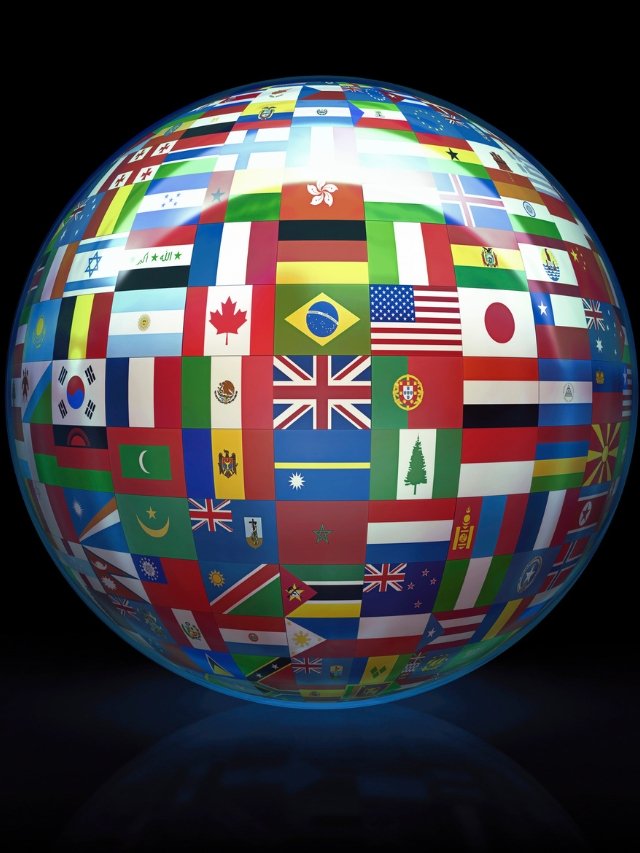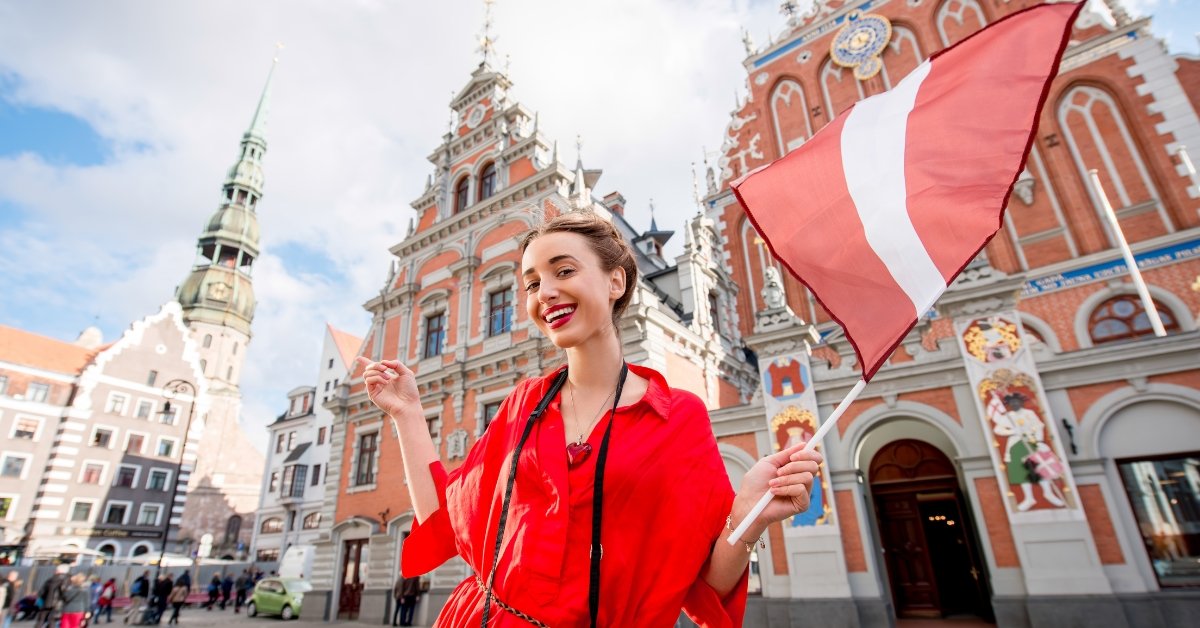Explore how many languages are spoken in Latvia, including Latvian, Russian, and minority dialects. Dive into Latvia’s rich linguistic heritage!
Table of Contents
Find Latvia’s vibrant linguistic landscape, from Latvian to Russian and beyond, in this engaging exploration of its languages and culture.
Introduction: Latvia’s Linguistic Tapestry
Nestled in the Baltic region of Northern Europe, Latvia is a small yet culturally rich nation known for its stunning landscapes, vibrant history, and diverse linguistic heritage.
However, how many languages are spoken in Latvia?
This question opens the door to a fascinating journey through the country’s past and present, where languages reflect identity, history, and global connections.
In this blog post, we will explore the languages spoken in Latvia, their cultural significance, and the factors shaping the nation’s linguistic diversity.
Whether you are a language enthusiast, a traveler planning a trip to Riga, or simply curious about Latvia’s culture, this post is for you!
The Official Language: Latvian
Latvian, the country’s official language, is at the heart of Latvia’s linguistic identity.
Spoken by approximately 1.5 million people, Latvian is a Baltic language belonging to the Indo-European language family.
It shares linguistic roots with Lithuanian but has distinct grammar, vocabulary, and pronunciation.
Latvian is more than just a means of communication—it symbolizes national pride.
After Latvia regained independence from the Soviet Union in 1991, efforts to promote Latvian as the primary language intensified.
Today, it is used in government, education, and media, ensuring its preservation for future generations.
Fun fact: Latvian is known for its melodic intonation, often described as “singing” due to its unique pitch accent. If you visit Latvia, do not be surprised to hear locals speaking in an almost musical rhythm!
Russian: A Prominent Minority Language
While Latvian is the official language, Russian is widely spoken, particularly in urban areas like Riga and Daugavpils.
Approximately 34% of Latvia’s population speaks Russian as their first language, a legacy of the Soviet era when Russian was promoted across the region.
Russian remains a significant part of Latvia’s linguistic landscape, especially among older generations and communities with ethnic Russian heritage.
However, its use in official settings is limited, as the Latvian government prioritizes using Latvian to strengthen national identity.
Despite this, Russian is commonly heard in everyday conversations, markets, and cultural events.
Knowing a few Russian phrases can be handy for travelers, especially in eastern Latvia, where Russian-speaking communities thrive.
Minority Languages and Dialects
Latvia’s linguistic diversity extends beyond Latvian and Russian.
Several minority languages and dialects add to the country’s cultural richness:
- Latgalian: Often considered a dialect of Latvian, Latgalian is spoken in the Latgale region. It has distinct vocabulary and grammar; some linguists argue it is a separate language. Efforts are underway to preserve Latgalian through literature and education.
- Livonian: This critically endangered language, once spoken by the Livonian people along Latvia’s coast, is nearly extinct. Only a handful of speakers remain, but revival efforts are helping keep Livonian alive through cultural programs.
- Yiddish and Romani: Historically, Latvia was home to Jewish and Roma communities, and traces of Yiddish and Romani languages can still be found in cultural archives and among diaspora communities.
These minority languages highlight Latvia’s multicultural history, shaped by trade, migration, and neighboring influences from Estonia, Lithuania, and Russia.
Foreign Languages in Latvia
In addition to native and minority languages, foreign languages are gaining popularity in Latvia, especially among younger generations.
English is widely taught in schools and is the language of choice for international communication, particularly in tourism and business.
In Riga, you will find many locals fluent in English, making navigation easy for visitors.
German and French are also taught in some schools, reflecting Latvia’s connections with Europe.
Meanwhile, Nordic languages like Swedish and Finnish are occasionally spoken, thanks to Latvia’s proximity to Scandinavian countries and growing tourism.
Latvia’s embrace of foreign languages reflects its forward-thinking approach, positioning the country as a hub for global exchange while preserving its linguistic roots.
How Many Languages Are Spoken in Latvia?
So, how many languages are spoken in Latvia?
While it is challenging to pin down an exact number due to dialects and occasional foreign influences, the primary languages include:
- Latvian (official)
- Russian (widely spoken)
- Latgalian (regional dialect/language)
- Livonian (endangered)
- Yiddish and Romani (historical)
- English, German, French, and Nordic languages (foreign languages)
In Latvia, you can expect to encounter at least 10 distinct languages or dialects with varying degrees of prevalence.
This linguistic diversity makes Latvia a fascinating destination for language-lovers and cultural explorers.
The Role of Language in Latvian Culture
Latvian languages are more than tools for communication—they’re deeply tied to identity and heritage.
Traditional Latvian folk songs, known as dainas, are a testament to the power of the Latvian language.
These short, poetic songs, passed down through generations, capture the essence of Latvian folklore and values.
Similarly, Russian-speaking communities celebrate their heritage through literature, theater, and festivals.
Minority languages like Latgalian and Livonian are also seeing a revival, with cultural organizations working to preserve them through music, poetry, and education.
Engaging with Latvia’s languages offers visitors a window into its soul.
Whether you learn a few Latvian phrases or attend a multilingual cultural event in Riga, you will feel the warmth and pride of Latvia’s people.
Trivia: Did You Know?
Latvian is one of only two surviving Baltic languages (the other being Lithuanian). It is considered one of the oldest languages in Europe, with roots dating back thousands of years. Its preservation is remarkable, given Latvia’s history of foreign rule!
Conclusion: Celebrate Latvia’s Linguistic Diversity
Latvia’s linguistic landscape is a beautiful blend of tradition, history, and modernity.
From the melodic tones of Latvian to the widespread use of Russian and the revival of endangered languages like Livonian, Latvia offers a rich tapestry of languages that reflect its unique place in the world.
Whether you are planning a trip to Riga, studying Baltic cultures, or simply curious about global languages, Latvia’s story is one worth exploring.
We hope this deep dive into Latvia’s languages has inspired you to learn more about this vibrant nation.
Hungry for more cultural insights?
Check out our other articles on Baltic history, travel tips, and language guides on our website.
Let us know your thoughts in the comments and happy exploring!



